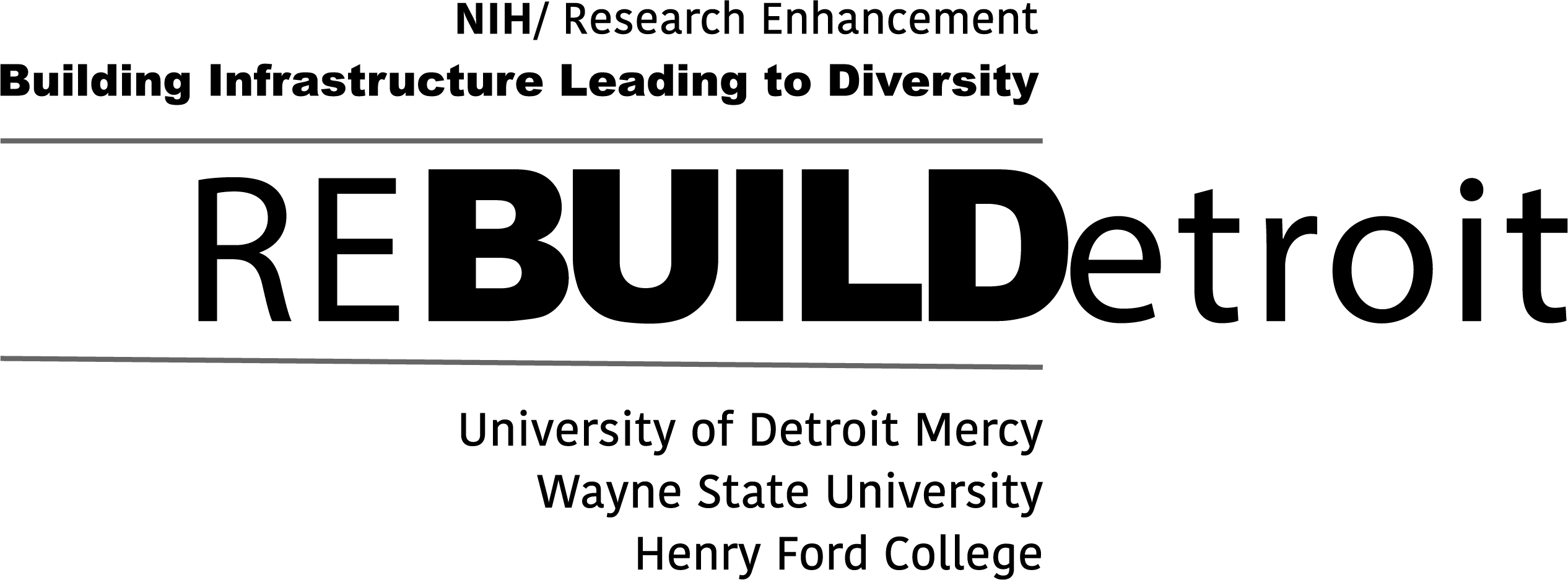ReBUILDetroit scholars will be presenting posters of their summer research experience during Research Day at the Charles H. Wright Museum of African American History on Tuesday, September 13 from 4-7 p.m. Scholars have created more than 40 posters from their work at University of Detroit Mercy, Wayne State University and Marygrove College.
The keynote speaker for the event is Dr. David Asai, senior director in science education at the Howard Hughes Medical Institute (HHMI).
Asai directs the HHMI Undergraduate and Graduate programs, which include: grants to colleges, research universities, and HHMI Professors; research fellowships to undergraduates, graduate students, and medical students; and the Science Education Alliance.
Before moving to HHMI in 2008, he was on the faculty for 19 years as the head of biological sciences at Purdue University and for 5 years at Harvey Mudd College as a professor and chair of biology.
Asai has served as a member of the board of trustees of the National PTA and the Higher Learning Commission-North Central Association. He currently serves on several advisory committees, including the Progress Through Calculus project of the Mathematical Association of America, the Committee on Opportunities in Science (COOS), Research Enhancement for BUILDing Detroit, and the NIH Advisory Committee of the Director’s Working Group on Diversity.
Asai received a B.S. in chemistry and M.S. in biology from Stanford University, and a Ph.D. in biology from the California Institute of Technology.
The Detroit consortium’s project, REBUILDetroit is an acronym for Research Enhancement for Building Infrastructure Leading to Diversity. During the first year of the grant, the three partner institutions, University of Detroit Mercy, Marygrove College and Wayne State University redesigned their curriculum with an emphasis on peer mentoring, early introduction to laboratory research and dedicated faculty advising.
The grant was awarded through the NIH’s Building Infrastructure Leading to Diversity (BUILD) initiative, created to get more minority and economically disadvantaged students in the STEM pipeline, expose students to research in laboratories and enhance the research-training environment. Studies have shown students from underrepresented backgrounds enter early biomedical research training in numbers that reflect the general population, but they are less likely to persist.
The consortium has been awarded $21.2 million over five years by the National Institutes of Health (NIH) to implement a program encouraging more undergraduate students from underrepresented and economically disadvantaged backgrounds to pursue careers in biomedical research. Detroit Mercy is the grant’s primary institution responsible for managing the grant.
The ReBUILDetroit Research Day is free and open to the public.
###
About University of Detroit Mercy
The University of Detroit Mercy is Michigan’s largest, private Catholic University with more than 100 academic majors and programs. Sponsored by the Society of Jesus (the Jesuits) and the Sisters of Mercy, the University has campuses located in downtown and northwest Detroit.
UDM is one of 28 Jesuit colleges and universities and the largest of 17 Mercy institutions of higher education in the United States. For the 15th consecutive year, University of Detroit Mercy is listed in the top tier of Midwest universities in the 2016 edition of the U.S. News and World Report’s “Best Colleges.”
About Marygrove College
Founded by the Sisters, Servants of the Immaculate Heart of Mary (IHM) in 1905, Marygrove College is an independent liberal arts college and a Catholic institution of higher learning. The College’s commitment to the city of Detroit comprises an institutional mission and vision for developing urban leaders. The main campus is situated on 53 wooded acres in northwest Detroit.
About Wayne State University
Wayne State University is a premier urban research institution offering more than 370 academic programs through 13 schools and colleges to nearly 28,000 students. Through its multidisciplinary approach to research and education, and its ongoing collaboration with government, industry and other institutions, the university seeks to enhance economic growth and improve the quality of life in the city of Detroit, state of Michigan and throughout the world.
